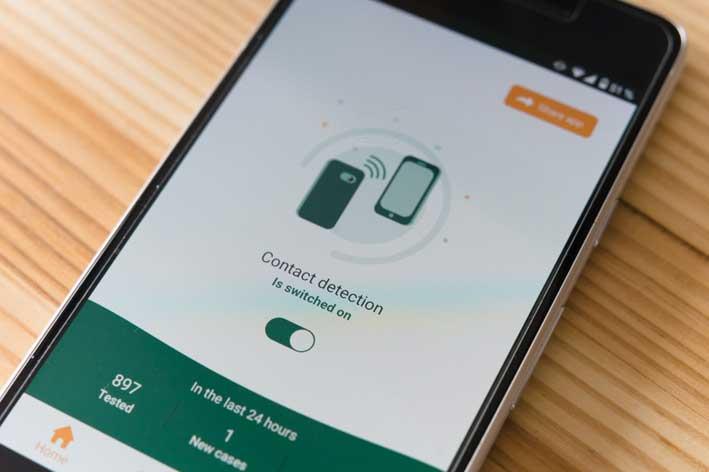Workers at the Covid-19 case management and contact tracing units are "drained and tired" and the whole process is up to nine days behind, three workers have told The Malta Independent on Sunday.
Their account of the situation contrasts starkly with statements made by Deputy Prime Minister Chris Fearne, who told Parliament this week that it takes 24 hours for case management to contact positive Covid cases, and up to 4 days to reach the contacts of the positive case.
With record numbers of new cases registered, several people who tested positive have told this newsroom that it took days for the contact tracing team to call them after they received their test result.
The Nationalist Party has also challenged Fearne's claim, with Opposition Leader Bernard Grech saying this week that "everyone knows [contact tracing] has collapsed".
The Malta Independent spoke to three people working in contact tracing and case management and asked them how their work has been affected by the surge in cases this week, with a record-breaking 510 cases being reported last Wednesday.
Jane and Lisa work in case management, while Emma* works in contact tracing.

Case management
Case management is focused on contacting positive cases, asking them to quarantine and putting together a database of individuals who have been in contact with the positive case.
The recent spike in cases has increased the workload of those who work at case management, making them feel worn down by the mountain of cases they face.
"The end of the tunnel is far away. You can feel that the people who give us our cases - who work there from morning to evening - are drained and tired," said Jane.
Despite being a team of over 100 people in case management, it is 5-7 days behind in contacting positive cases, both Jane and Lisa confirmed.
"When Deputy Minister Fearne said that it takes 24 hours to get in contact with positive cases, I think he was referring to the call the positive cases receive from a doctor telling them that they are positive and need to stay inside. This typically takes place within the first 24-48 hours of the test coming out positive. There are times when our team will call before the doctor, but this is rare. Right now, we are at our worst, unfortunately," Jane said.
The workers face many an obstacle when contacting positive cases. Some cases hang up their phone when they find out they're positive and will continue to go out and spread the virus, said Lisa.
The workers also stumble upon communication issues, particularly with foreigners and those who don't have a high level of communication. Other cases won't respond to calls for days on end.
"We've had people who don't answer their phone for 4 days and we'll be calling them constantly. It's so much time wasted," said Jane.
Sympathizing also forms a substantial role for case management workers.
"Recently I called a case and I found out that he passed away on the day I called. I had to talk to his relative and had to sympathize with them. You're not going to ask questions like a usual call, you have to empathize," Lisa said.
Despite the stress that the team is currently facing, Lisa said that hearing people co-operate makes her work worthwhile.
"Sometimes a case will make your day because you feel that the case is helping us to continue working. If everyone hangs up the phone, I think 'What's the use of case management'? But if you see that these cases are helping to stop transmission of the virus then it prompts you to help more."

Contact tracing
The database compiled by case management is then passed on to contact tracing, who call up everyone on the database. This generally includes family, work colleagues and any social connections.
Emma confirmed that contact tracing, like case management, are currently facing a significant backlog.
"The case management have many positive cases to reach out to because of the spike in cases. As a result, the contact tracing team are currently 9 days behind," she said.
"Due to the backlog, people who were in contact with the positive patient are going out when they are supposed to be in quarantine. By the time we contact these people, they would only have a week of their quarantine left and might have gone out in that time. This backlog is a major issue".
Tasked with contacting large groups of people, each case takes a substantial amount of time to tackle.
"I had a case last Thursday that took me a whole shift", explained Emma. "Sometimes, you need 16 hours or more to deal with one case. If the positive case was in a workspace or in an enclosed area, it makes it harder to contact everyone. There's a backlog because there's a lot of work that goes into contacting all these people."
The contact tracing team is usually made up of 20 people at a time and a group of doctors, for a regular afternoon shift. "This is our full capacity", said Emma, "however more people are being added to the team at the moment."
One major struggle the team faces is contacts supplying them contradictory information.
"We have had people lie about their address or their ID card or their email, and then you go to verify and it's not true. Others will deny being with the positive case so they don't need to quarantine. In these cases, we would need to send an inspector to their house to see that they are staying inside," said Emma.

Is 'collapse' a valid term to describe the current state of contact tracing?
When asked if contact tracing is going through a collapse, both Jane and Lisa said that the term is disrespectful to the people who are working their hardest to contact as many people as they can.
Emma, similarly, doesn't agree with the term 'collapse'.
"I wouldn't say it's collapsed, but it's definitely overworked. I think more staff would make a difference, especially for the case management team," she said.
Although the three workers understand that people are frustrated, they hope that the general public won't take out their anger on the workers in contact tracing and case management.
"You can't blame the workers, they're doing the work that they can manage and it's not easy," Emma said.
Instead of targeting the contact tracing system, the three workers encourage the public to act responsibly and take all necessary precautions, in order to reduce the severe backlog it is facing.
"Contact tracing is spread thin. It's not because the system isn't working. It's because the people out there are not taking care of others. It's the immaturity that is making the cases increase," explains Lisa.
Both case management and contact tracing are currently in the process of growing their teams, in the hopes that cases are dealt with faster.
"We're trying to increase our resources, but we are struggling and we're trying to do the best we can with what we have," says Jane. "What we need is more co-operation from the public. I know it's been a year and everyone is exhausted, but we need to all do our part and maybe somehow we can end up how we were before this all started, as quickly as possible".
*The three workers' names have been changed to protect their identities.
